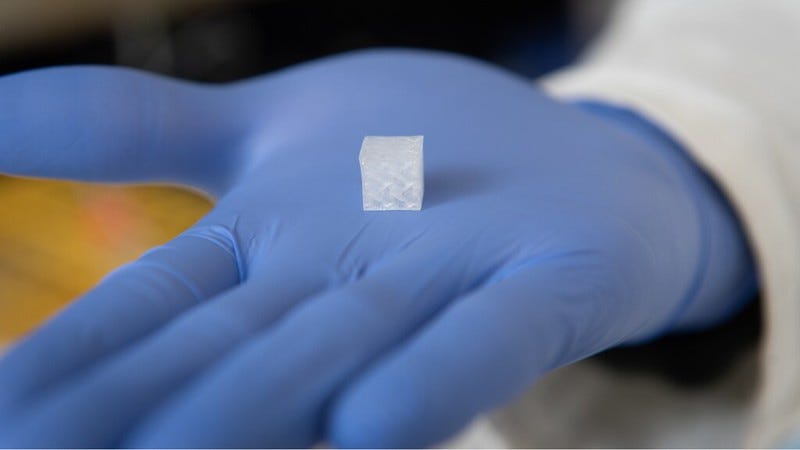Experiment Tests 3D Bioprinted Liver Tissue in Space
Microgravity Study Aims to Advance Regenerative Medicine
Scientists have launched an experiment to the International Space Station (ISS) to study how 3D bioprinted liver tissue behaves in microgravity, a project led by the Wake Forest Institute for Regenerative Medicine (WFIRM). The investigation, sponsored by ISS National Labs, launched on SpaceX’s 33rd Commercial Resupply Services mission contracted by NASA, seeks to improve tissue engineering for medical treatments on Earth and in space.
“This collaborative investigation has the potential to yield remarkable results.”
James Yoo, Wake Forest Institute for Regenerative Medicine
The experiment focuses on 3D bioprinted liver tissue with vascular channels, which are critical for delivering oxygen and nutrients to keep tissues functional. On Earth, WFIRM researchers have created liver tissue constructs that remain viable for 30 days, but maintaining large, thick tissues is challenging due to vascularization limitations. Microgravity may enhance cell behavior and tissue development, potentially overcoming these hurdles.
“This collaborative investigation has the potential to yield remarkable results,” said James Yoo, a professor at WFIRM leading the effort. “By leveraging bioprinting technologies, we’ve created gel-like frameworks with channels for oxygen and nutrient flow that mimic natural blood vessels, opening up new possibilities for medical treatments both on Earth and in space.”
The project builds on WFIRM’s success in NASA’s Vascular Tissue Challenge, where two teams—Team Winston and Team WFIRM—won $400,000 for creating functional liver tissue. Team Winston will test 36 bioprinted liver constructs using Redwire Space’s Multi-Use Variable-Gravity Platform to assess how microgravity affects cell characteristics, such as the formation of blood vessel linings. The experiment could lead to better disease modeling, drug testing, and eventually, lab-grown organs for transplants.
The Vascular Tissue Challenge, organized by the Methuselah Foundation’s New Organ Alliance for NASA, supports regenerative medicine to improve human health and prepare for long-term space missions. “Our mission at the Methuselah Foundation involves advancing human longevity through regenerative medicine,” said David Gobel, co-founder and CEO of the Methuselah Foundation.
Our Take
This experiment could revolutionize regenerative medicine by improving the creation of functional tissues for transplants, addressing the organ shortage crisis affecting over 100,000 people on U.S. transplant waiting lists.
Insights from microgravity may also help protect astronauts’ health during deep space missions, advancing both terrestrial healthcare and space exploration.



